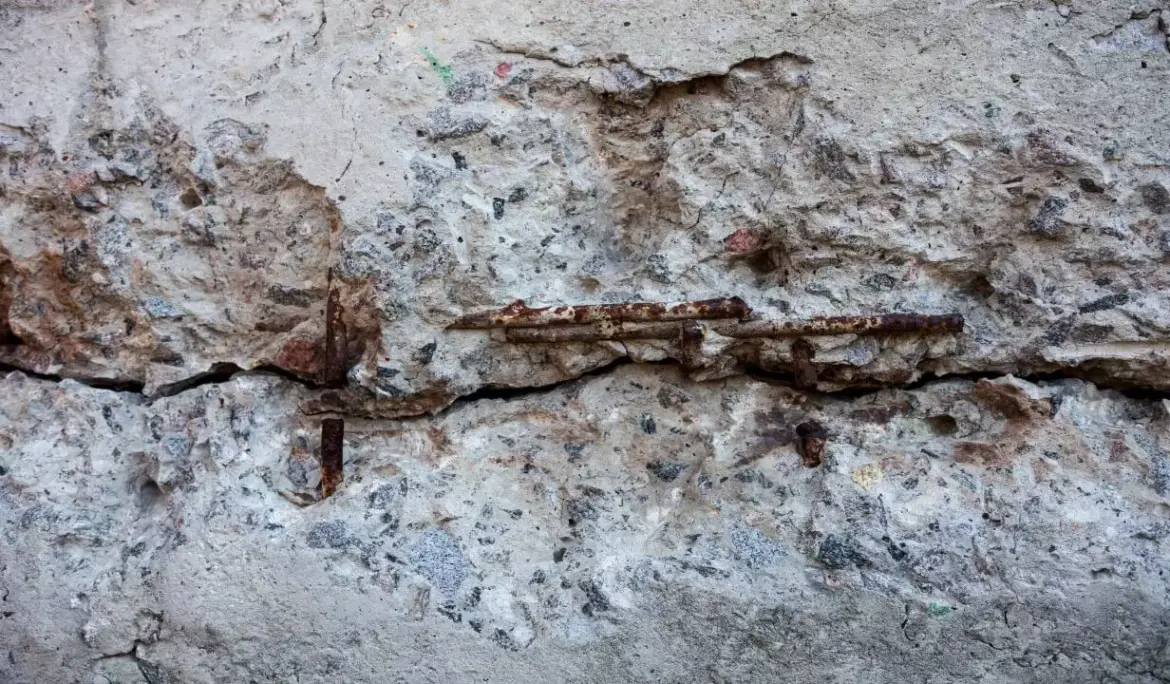How does concrete corrosion happen?

In this article, we discuss how concrete corrosion happens. To buy and know the price of super lubricant, tile adhesive, anti-acid mortar, rebar planting adhesive, concrete restorer, epoxy and antifreeze grout, etc., you can contact Shimi Abadgaran Company. Call.
فهرست مطالب
- 1 How does concrete corrosion happen?
- 2 Buildings and structures
- 3 What is a corrosion inhibitor?
- 4 What points should be considered when choosing a concrete inhibitor or sealer?
- 5 Advantages of corrosion inhibitors in concrete repair
- 6 Purchase and price of super lubricant, tile adhesive, anti-acid mortar, rebar planting adhesive, concrete restorer, epoxy grout and antifreeze company Shimi Abadgaran
- 7 the address of Central office
- 8 Address of Shahriar factory
How does concrete corrosion happen?
Concrete corrosion refers to the destruction of reinforcing steel in a structure. With the increasing importance of corrosion prevention, more companies have prioritized this area during the design phase of building assets. However, corrosion is inevitable. Accelerates in harsh environments, including those with extreme temperatures or high salt levels. In addition, concrete corrosion is comparable to cancer, it gradually spreads throughout a concrete structure and is often invisible until cracks appear on the surface.
Buildings and structures
It affects buildings and structures around the world and usually starts with an improper pH balance on reinforcing steel bars. Currently, concrete usually forms a layer on the surface of the steel bars that prevents corrosion, but over time, concrete degradation may lead to exposure to additional materials, including water, chlorides, and other salts. which leads to the destruction of this passive. the movie
Carbonation is another corrosion catalyst. Carbonation occurs when carbon dioxide dissolves in concrete’s pore fluids. This reaction is inevitable, caused by the natural presence of carbon dioxide in the atmosphere. This reaction forms carbonic acid, which then reacts with the materials in the cement paste to form calcium carbonate.
What is a corrosion inhibitor?
If left unchecked, steel corrosion in concrete reinforcement structures will cost your company a lot and may require a complete replacement. However, using corrosion control, the use of corrosion inhibitors, in the early design stages and throughout your building maintenance program is the best way to extend the life of your concrete assets. A common method for repairing cracked concrete is to remove the damaged sections, replace rebar and patch where needed. This helps reduce the penetration of oxygen, water or salt into the concrete. Therefore, it is best to use a corrosion inhibitor along with a waterproof seal to prevent the rebar from being exposed to the elements.
There are also products that are produced specifically to reduce the risk of chloride ions coming into contact with the reinforcing steel and even modifying the concrete mix to increase its impermeability. Basically, waterproof concrete has little risk of ingress of corrosive agents.
What points should be considered when choosing a concrete inhibitor or sealer?
Waterproofing membranes are perhaps an overlooked aspect of concrete repair and damage prevention strategies. While it is great to focus on corrosion inhibitors, the waterproofing membrane applied to the surface of the concrete is the first line of defense against the intrusion of corrosion-promoting materials. In addition, waterproof sealing on the surface of concrete is actually used in concrete barriers. Concrete sealers have different characteristics. The most basic function is to protect against the ingress of moisture, carbonates and other potentially damaging elements. Others add stain resistance or corrosion inhibition.
Corrosion inhibition is especially needed in applications exposed to sea air with high humidity and chloride levels or in northern climates where deicers are required.
To ensure that your team chooses the right sealant or additive to prevent corrosion, it’s important to consider a few things. This includes:
-
Liquid vs. Powder Corrosion Inhibitors Depending on the scale and specifications of the repair, a liquid or powder corrosion inhibitor may be appropriate. Of course, both materials are usually mixed with concrete or injection materials to fill cracks and damages. Regardless, the key is to make sure your team can properly store and transport materials based on their liquid or powder state.
-
The integrity of the bed and the extent of water penetration. Another important point is the amount of damage to the substrate. If excessive water penetration has occurred, a corrosion inhibitor may need to be sprayed directly onto the replaced rebar and allowed to set before the repair is completed.
-
Setting the time and weather conditions necessary for application. As with all types of concrete repairs, setting time and weather conditions will affect the effectiveness of corrosion inhibitors, so planning is critical to ensure products perform as expected.
-
Effective against carbonation and chlorides. Effective against carbonation and chlorides. This may include corrosion inhibitors against both or one type of corrosion agent.
Advantages of corrosion inhibitors in concrete repair
The benefits of using corrosion inhibitors for concrete repair are easy to understand and include:
-
Less shedding and less repairs. Because the rebar remains strong, the concrete is less susceptible to damage, thereby reducing overall maintenance costs, provided a proper waterproofing barrier and surface corrosion inhibitors are used for the concrete. This effectively prevents further destruction of steel and concrete structures as well.
-
Ability to target multiple causes of degradation. While some buildings may be exposed to specific types of corrosion-causing materials, some are always present, such as carbonation. Consequently, the main advantage of using an inhibitor is to target multiple causes of degradation and corrosion in one repair. In addition, corrosion inhibitor admixtures can also create greater adhesion between substrates to increase the impermeability of concrete and prevent future corrosion.
Read more: Epoxy rebar planting glue

